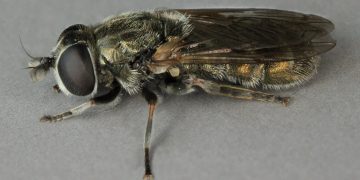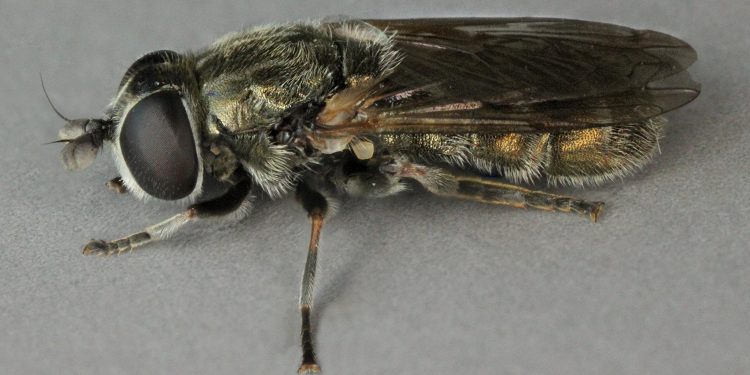PestControl #SustainableFarming #OnionVarieties #BiologicalControl #CropRotation
The onion fly, also known as Eumerus spp., is a widespread pest that attacks onion crops around the world. This insect can cause significant damage to onion plants, leading to yield losses and reduced quality of the harvested produce. Fortunately, there are several effective strategies for controlling onion fly infestations.
One of the primary methods for controlling onion fly populations is through the use of insecticides. These chemicals are applied directly to the onion plants to kill the adult flies and their larvae. However, there are concerns about the potential negative impact of insecticides on the environment and human health, and therefore their use should be limited to the extent possible.
Another approach to controlling onion fly infestations is through the use of cultural practices. These practices include crop rotation, deep plowing, and proper plant spacing. By rotating onion crops with other non-host plants, the onion fly population can be reduced over time. Deep plowing can help to bury onion fly pupae, preventing them from developing into adult flies. Proper plant spacing can also reduce the attractiveness of onion crops to the flies.
Biological control is another effective strategy for managing onion fly populations. This involves using natural predators, such as parasitic wasps, to attack the flies and their larvae. Biological control is a more sustainable and environmentally-friendly approach to pest management.
The development of resistant onion varieties is also a promising avenue for controlling onion fly infestations. By breeding onion plants that are less attractive to the flies, or that have built-in resistance to their attacks, farmers can reduce their reliance on insecticides and other pest control measures.
Onion fly infestations can cause significant damage to onion crops, but there are several effective strategies for controlling their populations. These include the use of insecticides, cultural practices, biological control, and the development of resistant onion varieties. By implementing a combination of these approaches, farmers can effectively manage onion fly infestations and protect their onion crops.































